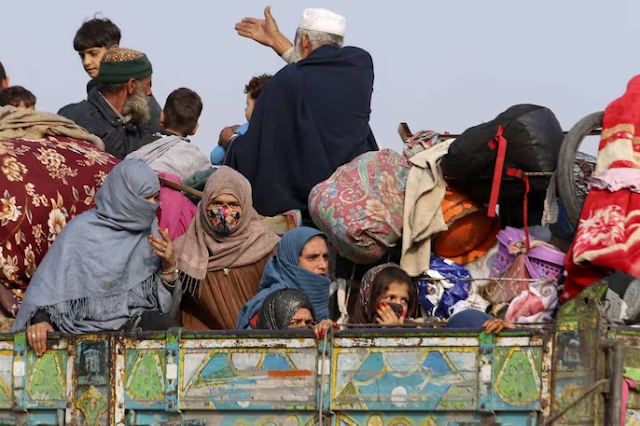Thousands of Afghan refugees flee Pakistan as deportation deadline ends
As a deportation deadline for Afghan refugees residing in Pakistan comes to an end, thousands are fleeing the country in search of safety and security. The situation highlights the complex challenges that Afghan refugees face and underscores the urgent need for international cooperation to address their plight.
The Deadline and Its Implications
The deportation deadline, imposed by the Pakistani government, has been a cause of concern for Afghan refugees who have called Pakistan home for many years. With this deadline approaching, those without proper documentation are at risk of being forcibly returned to Afghanistan, a country plagued by conflict, instability, and economic hardship.
Many Afghan refugees have struggled to obtain valid documentation over the years, leaving them vulnerable to deportation. This situation has prompted a mass exodus from Pakistan, as refugees seek to avoid the uncertain and perilous conditions they would face if they were to return to Afghanistan.
Challenges for Afghan Refugees
The plight of Afghan refugees is a human tragedy. Many have lived in Pakistan for decades, having fled their homeland due to conflict, persecution, or economic hardship. Over the years, they have built lives, families, and communities within Pakistani borders. The sudden prospect of deportation creates immense uncertainty and fear, as they face the daunting prospect of returning to a nation still marred by violence and instability.
This situation is further compounded by the ongoing crisis in Afghanistan, which has escalated since the withdrawal of foreign forces. Security concerns, a fragile government, and economic instability in Afghanistan make it an inhospitable place for returning refugees.
The Call for International Assistance
As Afghan refugees flee Pakistan in the face of the deportation deadline, there is a pressing need for international organizations and the global community to step in. The United Nations and various humanitarian agencies have been working to provide support for Afghan refugees, but the sheer scale of the issue requires a coordinated international effort.
Efforts should focus on providing humanitarian aid, resettlement options, and opportunities for refugees to integrate into host countries while their legal status is determined. Pakistan, as a host nation, should also consider offering a more compassionate approach to those who have lived within its borders for extended periods.
Conclusion
The situation unfolding as Afghan refugees flee Pakistan due to the deportation deadline is a poignant reminder of the complexities and challenges faced by displaced populations. It is crucial for the international community to respond with compassion and assistance. Addressing the needs of Afghan refugees and working towards a sustainable, long-term solution should be a shared responsibility to prevent further suffering and displacement.



Comments
Post a Comment